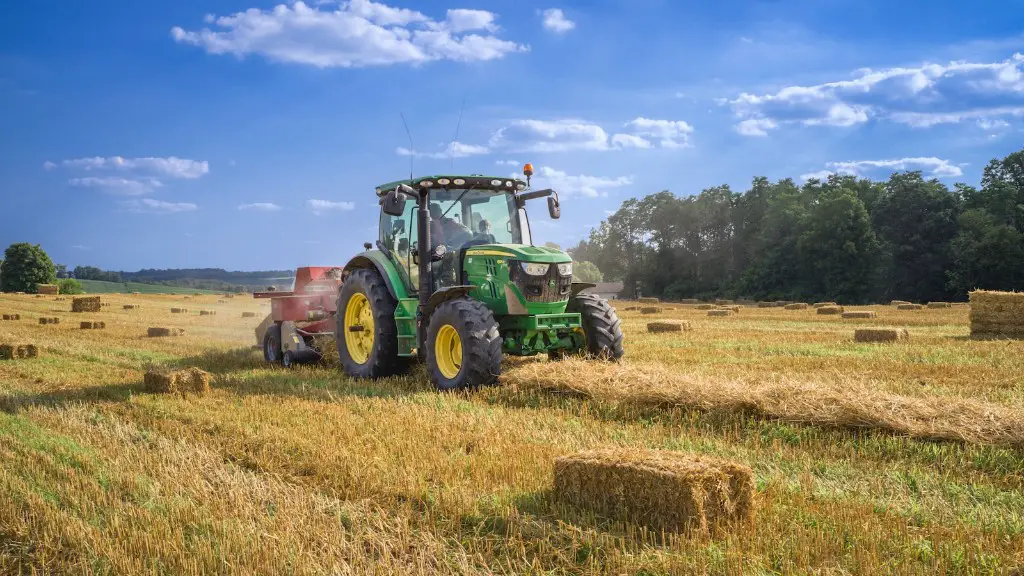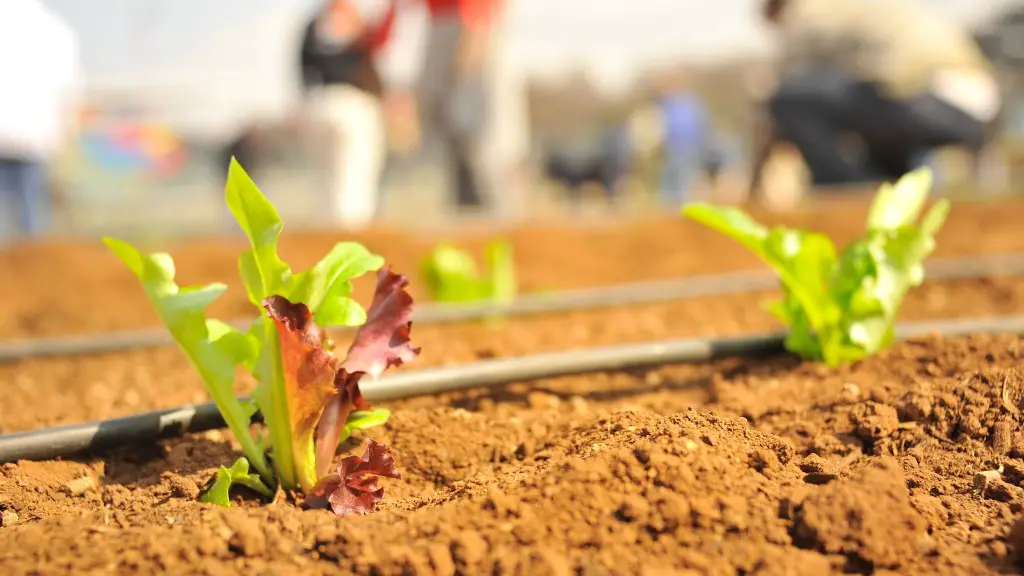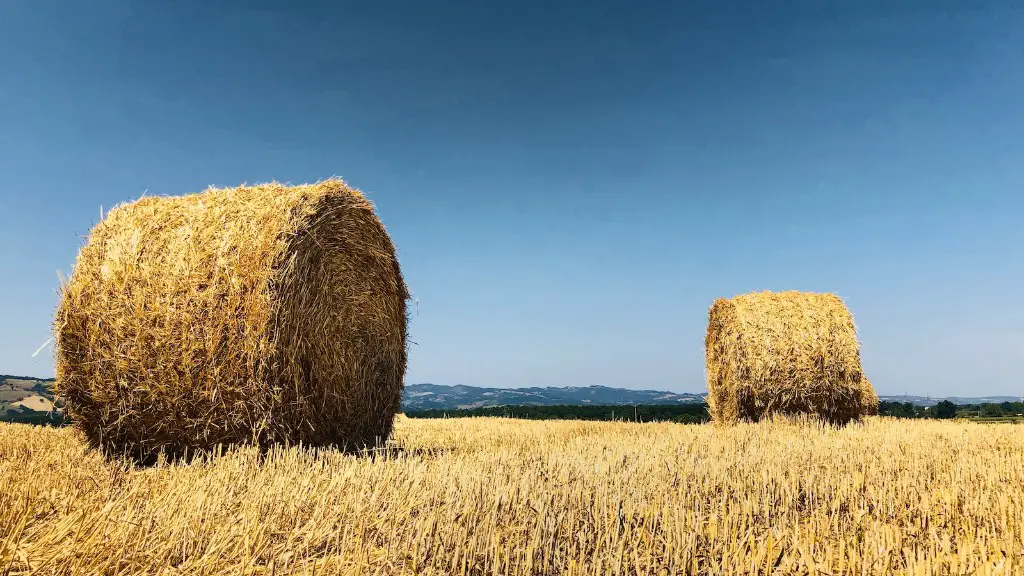Organic agriculture is a set of practices that are based on a system of farming that is in harmony with nature. The principles of organic agriculture are:
1. Health: Organic agriculture should sustain and enhance the health of soil, plants, animals, and humans.
2. Ecology: Organic agriculture should be based on living ecological systems and cycles, promotes biological diversity and cycling of resources.
3. Fairness: Organic agriculture should build on relationships that ensure fair trading, deliver equitable benefits to all stakeholders, and enable farmers to make a decent living.
4. Care: Organic agriculture should be managed in a precautionary and responsible manner to protect the health and wellbeing of current and future generations and the environment.
The principles of organic agriculture are defined by the United States Department of Agriculture as follows:
1. Health: Organic agriculture should sustain and enhance the health of soil, plants, animals, and humans as one and indivisible.
2. Ecology: Organic agriculture should be based on living ecological systems and cycles, work with them, and emulate them.
3. Fairness: Organic agriculture should build on relationships that ensure fairness with regard to the common environment and life opportunities.
4. Care: Organic agriculture should be managed in a precautionary and responsible manner to protect the health and well-being of current and future generations and the environment.
What is the basic principle in agriculture?
The basic principles of farming are important for any farmer to follow in order to ensure a successful harvest. By choosing the right time to plant and break up the soil, as well as ensuring its fertility and moisture levels, farmers can ensure their crops will be healthy and thrive. Additionally, hoeing early and harvesting early can help to prevent crop damage and ensure a bountiful harvest. By following these basic principles, farmers can set themselves up for success and ensure a bountiful harvest.
Organic farming methods are in line with the four basic principles that reveal their essence: health, ecology, fairness, and care. These principles are the driving force of the concept, interrelating and enhancing each other.
What are the characteristics of organic agriculture
Organic farmers understand that the health of their crops and animals is directly linked to the health of the environment. They work to maintain and improve fertility, soil structure and biodiversity while reducing erosion. They also take measures to reduce the risks of human, animal, and environmental exposure to toxic materials. By fine-tuning their farming practices to meet local production conditions and satisfy local markets, organic farmers are able to create a sustainable, environmentally friendly business model.
The three C’s of organic vegetable gardening are crop rotation, companion planting, and cover cropping. Incorporating these into your vegetable garden maintenance routine will promote healthy soil, resulting in better flavor and a better yield.
What are the 5 basic principles?
In the United States, the five basic principles of ethics are valued highly. These principles are the value of life principle, the principle of goodness or rightness, the principle of justice or fairness, the principle of truth telling or honesty, and the principle of individual freedom. All of these principles are important in the United States and are what make the country a great place to live.
Organic farming is a type of agriculture that relies on organic materials – such as crop rotation, green manure, and compost – to maintain soil productivity and control pests. Organic farmers also strive to create a more diverse range of crops, which can help to improve soil health and reduce the risk of crop pests and diseases.
What is the main objective of organic farming?
Organic farming is a type of agriculture that focuses on sustainable, environmentally-friendly practices. Its objective is to maintain biodiversity, protect animal welfare, and conserve the regional ecological balance. The commission proposed that organic farming could be one way to help achieve these goals.
Organic agriculture has its roots in the principles of health, ecology, fairness, and care. These principles express the contribution that organic agriculture can make to the world, and a vision to improve all agriculture in a global context. Organic agriculture has the potential to improve the health of the planet and its people, to create a more just and equitable food system, and to play a key role in mitigating and adapting to climate change.
What is organic agriculture in simple terms
Organically grown food is food that is grown and processed using no synthetic fertilizers or pesticides. Pesticides derived from natural sources (such as biological pesticides) may be used in producing organically grown food. Organically grown food is often more expensive than conventionally grown food, but many people believe that it is worth the extra cost because it is healthier and tastes better.
Organic farming is a form of agriculture that relies on natural processes, rather than the use of synthetic inputs, to grow crops and raise livestock. Organic farming practices are designed to promote the health and productivity of soils, ecosystems, and animals.
Organic farming practices can have a number of environmental benefits, including reducing soil erosion, promoting soil health, and reducing the use of synthetic pesticides and fertilizers. In addition, organic farming can promote sustainable development by supporting local economies and providing opportunities for small-scale farmers.
Organic food is also generally healthy and tasty, as it is produced without the use of synthetic pesticides and fertilizers. In addition, organic food is often less expensive than non-organic food, as organic farmers do not have to purchase these synthetic inputs.
Finally, organic farming can provide a source of employment for small-scale farmers and rural communities. In many parts of the world, organic farming is the only form of agriculture that is viable, due to the high cost of synthetic inputs. By supporting organic farming, we can help to create jobs and improve the lives of small-scale farmers.
What are the six methods of organic farming?
Organic farming is a form of agriculture that relies on natural processes instead of synthetic inputs. Proponents of organic farming believe that it is more environmentally sustainable than conventional farming. There are many different methods of organic farming, but all share the common goal of avoiding the use of synthetic inputs.
Crop diversity is one key element of organic farming. By growing a variety of crops, farmers can reduce their reliance on any one crop, making their farm more resilient to pests and diseases. Crop rotation is another important element of organic farming. This involves growing different crops in different sections of the field in successive years. This helps to improve soil fertility and control weeds.
Biological pest control is another key element of organic farming. This involves using natural predators and parasites to control pests, rather than relying on synthetic pesticides. Soil management is also important in organic farming. This includes practices such as composting and green manure, which help to improve soil fertility.
Weed management is another important aspect of organic farming. Weeds can compete with crops for water and nutrients, so it is important to control them. This can be done through mechanical means such as hand-weeding, or through the use of organic herbicides.
Organic farmers also need
Organic farming is a type of agriculture that focuses on producing food and other crops in a way that is environmentally friendly and does not use synthetic chemicals. India is one of the world’s leading producers of organic fertilizers, with a production volume of 1.2 million tons in 2020-21. Andhra Pradesh, Arunachal Pradesh, Assam, Bihar, Chhattisgarh, Gujarat, Haryana, Himachal Pradesh, Jharkhand, Karnataka, Kerala, Madhya Pradesh, Maharashtra, Manipur, Mizoram, Nagaland, Odisha, Punjab, Rajasthan, Sikkim, Tamil Nadu, Telangana, Tripura, Uttar Pradesh, Uttarakhand, and West Bengal are the top producing states in India.
What are the two main characteristics of organic farming
Organic farming is a system of farming which avoids or largely excludes the use of synthetic inputs. This means that organic farmers rely on crop rotations, crop residues, animal manures and other organic materials to keep their soils fertile and their plants healthy. By using these natural methods, organic farmers are able to protect the long-term fertility of their soils.
The framers of the Constitution believed that power should come from the people instead of from God. This is the principle of popular sovereignty. Limited Government The Constitution limits the power of the government. Separation of Powers The Constitution divides the power of the government into three branches: the legislative, executive, and judicial. Federalism The Constitution created a federal system of government. Checks and Balances The Constitution gives each branch of the government ways to check the power of the other branches. Republicanism The Constitution created a republic, a type of government in which elected officials represent the people. Individual Rights The Constitution protects the rights of individuals.
What are the 4 major principles?
The four main ethical principles are beneficence, nonmaleficence, autonomy, and justice. Informed consent, truth-telling, and confidentiality spring from the principle of autonomy, and each of them is discussed.
Beneficence is the duty to do good. Nonmaleficence is the duty to avoid doing harm. Autonomy is the right to self-determination. Justice is the principle of fairness.
Informed consent is the process by which a person gives permission for something to happen, based on full information about the risks and benefits. Truth-telling is the duty to provide accurate information. Confidentiality is the duty to keep information private.
The Red Cross and Red Crescent Movement is founded on seven Fundamental Principles: humanity, impartiality, neutrality, independence, voluntary service, unity and universality. These Principles guide the work of the Movement and its partners, and provide a ethical framework for how we help people in need.
Humanity: The Movement’s purpose is to protect human life and health. We are guided by our values of compassion, respect, inclusiveness and humanity.
Impartiality: We provide assistance on the basis of need, regardless of the identity of the person in need, and without discrimination.
Neutrality: We do not take sides in hostilities or align ourselves with any one party.
Independence: We work independently of political, economic or religious influences.
Voluntary service: We are a voluntary movement, motivated by our mission and values.
Unity: The Movement is united by our shared Fundamental Principles.
Universality: The Movement is open to all, regardless of nationality, race, religious beliefs, class or political opinions. We are impartial and offer our assistance to whoever needs it.
What are the 3 benefits of organic farming
Organic farming has many benefits compared to conventional agriculture. These benefits include using fewer pesticides, reducing soil erosion, decreasing nitrate leaching into groundwater and surface water, and recycling animal wastes back into the farm. However, these benefits are counterbalanced by higher food costs for consumers and generally lower yields.
Farmers have long used various sustainable practices to maintain the health of their soils and crops. Some of these practices include crop rotation between plant families, techniques to build soil organic matter such as cover crops or adding compost and properly handled animal manures, selecting disease tolerant plants, scouting for insect and disease pests, using trap crops, proper disposal of diseased crop residue. All of these practices help to keep soils healthy and productive, while also reducing the need for synthetic inputs.
Warp Up
The basic principles of organic agriculture are pretty simple: avoid the use of synthetic chemicals, foster the cycling of resources, and promote ecological balance. But there’s more to it than that. Here are the seven principles of organic agriculture, as developed by the International Federation of Organic Agriculture Movements:
1. Health: Organic agriculture should sustain and enhance the health of soil, plants, animals, and humans as one and indivisible.
2. Ecology: Organic agriculture should be based on living ecological systems and cycles, work with them, and emulate them.
3. Fairness: Organic agriculture should build on relationships that ensure fairness with regard to the common environment and life opportunities.
4. Care: Organic agriculture should be managed in a precautionary and responsible manner to protect the health and welfare of current and future generations and the environment.
5. Sustainability: Organic agriculture should maintain and enhance the long-term fertility of soils, the genetic diversity of plant and animal species, and the ecological stability of agroecosystems.
6. Unity in diversity: Organic agriculture should emphasize the importance of genetic and species diversity for ecological stability and for the welfare of current and future generations.
7. Sharing
Overall, organic agriculture aims to produce food while having a minimal negative impact on the environment. There are four main principles that guide organic farmers which are: health, ecology, fairness, and care. Organic farmers strive to create a more sustainable and environmentally friendly way of growing crops and raising livestock. They do this by using natural methods of pest control, promoting soil health, and reducing pollution.




